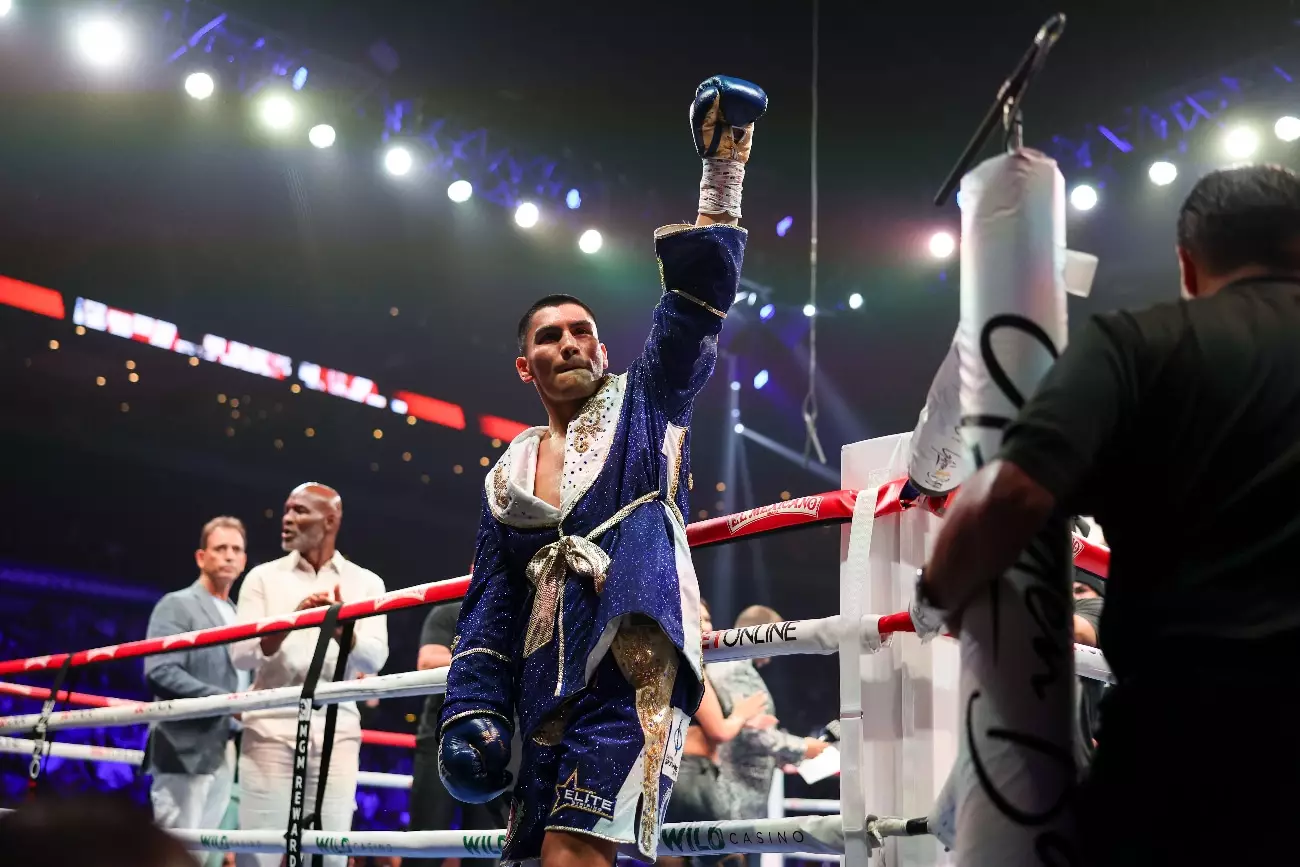In the world of boxing, when two undefeated fighters are set to clash, excitement builds to a fever pitch. Vergil Ortiz Jr., the WBC interim junior middleweight champion, and Jaron ‘Boots’ Ennis, a rising star in the welterweight division, were primed to deliver such a spectacle on February 22nd in Riyadh, Saudi Arabia. Fans envisioned an electrifying encounter that could redefine their careers; however, the dream matchup fizzled out due to unresolved contractual terms and weight limitations that have left many questioning the negotiation process behind the scenes.
The collapse of the Ortiz-Ennis fight has sparked a myriad of discussions among boxing enthusiasts and analysts alike. According to reports, the main sticking point was the weight at which the fight was to be contested. Ennis’s camp purportedly insisted on a welterweight limit of 147 pounds, a request that posed significant challenges for Ortiz, who would have to cut down to a weight that he might not be able to reach without compromising his performance. This raises questions about the motivations driving both camps and how they evaluate risk versus reward in their respective careers.
While some critics might argue that Ennis’s camp was being overly cautious, it’s essential to recognize that every fighter must weigh their options carefully. Ennis’s last bout against Karen Chukhadzhian showcased his vulnerabilities, prompting the need for a calculated approach moving forward. With a promoter like Eddie Hearn advocating for unification matches within the welterweight division, it’s clear that Ennis’s focus lies in protecting his IBF title and avoiding risky encounters that could jeopardize his rising star status.
For Vergil Ortiz, the cancellation of this fight is particularly troubling. With a record of 22-0 and 21 knockouts, Ortiz has established himself as a formidable presence in boxing, but each missed opportunity to fight a top contender raises concerns about his trajectory. Efforts are now underway to secure an alternative opponent for Ortiz on the depriving date, but with Sebastian Fundora reportedly unavailable, the search becomes increasingly desperate.
Ortiz’s career hinges on high-caliber bouts that allow him to prove himself against elite competition. As was reported, past agreements had once suggested a robust anticipation between the two fighters, but as negotiations “cratered,” the stakes have shifted unexpectedly. For Ortiz, the importance of finding a suitable opponent can’t be understated—he needs to maintain visibility and relevance in a sport where every match can significantly impact a fighter’s legacy and marketability.
The fallout from the Ortiz-Ennis situation underscores the complex dynamics that can shape the boxing landscape. Fighters are increasingly protective of their records and titles, leading to missed opportunities for fans to witness exhilarating matchups. As promoters like Hearn navigate these negotiations, it remains evident that the sport needs a renewed emphasis on making compelling fights, ideally with the cooperation of all parties involved.
In a time when the health and reputation of boxing are constantly under scrutiny, both Ortiz and Ennis need to make strategic decisions that not only pave the path to glory but also deliver the riveting action that fans crave. In this moment of disappointment, the boxing community is hopeful that renewed negotiations will lead to fights that live up to the expectations set by these remarkable athletes.

